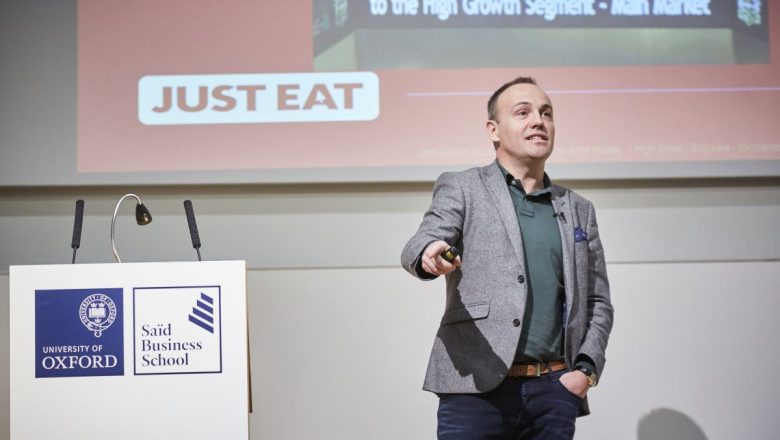No doubt many entrepreneurs focussed on David’s thoughts on data analytics: insights included how mobile apps are so much better for repeat business than websites (double the orders from an app), and how Just Eat knew enough from its customer’s habits to know the perfect time to suggest (by email) a Thai curry.
Or maybe it was David’s claim that 25% of food deliveries in 5 years would be by robot and that Just Eat is already trialling 70 such robots in London. The claim becomes easier to understand with one key statistic: 25% of all food deliveries cover a distance of less than 750m.
What stood out for me was this phrase:
“Just Eat was built by a thousand founders“
That phrase meant that Just Eat created a ‘founder mindset’ in its employees through its culture. Culture wasn’t something that happened – it was planned, established, measured and refined. David would regularly take on functions of every employee in the workforce – spending time taking customer calls or out on delivery. This enabled him to see the business from the employee’s perspective and understand what was needed. Social events were a key part of establishing the culture – from enormous global parties to David having his second line managers round for dinner.
His view was that establishing a founder mindset created an unstoppable workforce. A workforce that didn’t need micromanaging, as they genuinely applied their minds and best judgement for the benefit of the business.
So far, so good. Inspiring stuff.
But I’m sure I’m not the first person to be cynical of a manager pushing this sort of idea. This Dilbert strip hits the nail on the head: “We need to foster a start-up culture to drive innovation” announces the boss; “… Dress casually… flex hours… our work is valued… equity in the company?” comes the hopeful reply; “What would the name of a culture be where people work hard but don’t get any of those things…?” wonders the boss. This is a topic I can warm to – having come from the legal industry, where partnership was the carrot (or stick) used to drive juniors to work 75+ hour weeks, but with only a 3.7 % chance of any new joiner becoming partner. So, was Just Eat’s claim to be built by a thousand founders just hot air?
“100% of employees owned shares in Just Eat, prior to listing“, David responded to my question.
That is exceptional and deserves recognition – many companies have ambitions towards this, very few get anywhere close.
